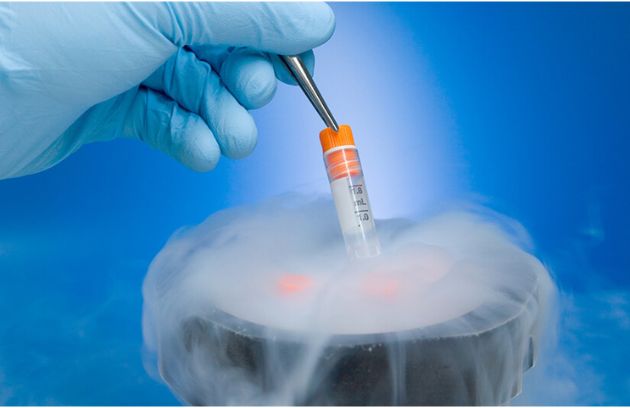Table of Contents
In recent years, embryo freezing and egg freezing have emerged as transformative options for individuals and couples looking to preserve their fertility. These techniques provide a proactive choice for those who wish to delay pregnancy, safeguard fertility before medical treatments, or plan future family options with confidence. Embryo freezing and egg freezing in India have become increasingly accessible and popular, thanks to advancements in reproductive technology and the availability of world-class fertility centers.
This article dives into the essentials of embryo freezing and egg freezing in India, exploring how these options work, who can benefit, the process involved, costs, success rates, and how to choose the right fertility center.
1. What is Embryo Freezing and Egg Freezing?
- Egg Freezing: This process involves harvesting and freezing a woman’s eggs for future fertilization.
- Embryo Freezing: In embryo freezing, eggs are fertilized with sperm to form embryos, which are then frozen. This is an ideal choice for couples who are ready to fertilize eggs but may not be prepared for immediate implantation.
Both techniques offer the opportunity to extend fertility timelines and are available at top fertility centers across India.
2. Why Choose Embryo Freezing or Egg Freezing in India?
- Affordability: Compared to many Western countries, the costs of fertility preservation in India are highly competitive, allowing patients to receive world-class care at a fraction of the cost.
- Advanced Technology: India’s top fertility centers are equipped with the latest cryopreservation technologies, ensuring safe and effective freezing processes.
- Experienced Specialists: India has a wealth of highly skilled fertility specialists and embryologists with experience in handling complex fertility cases, ensuring quality care throughout the process.

3. The Process of Egg Freezing in India
3.1 Ovarian Stimulation
- Method: Daily hormone injections for about 10-14 days.
- Monitoring: Regular ultrasounds and blood tests to track follicle growth.
3.2 Egg Retrieval
Once the eggs reach maturity, they are retrieved in a short, minimally invasive procedure done under sedation. A thin needle is used to collect the eggs, which are then quickly transported to a laboratory.
3.3 Freezing Process
The harvested eggs are frozen through a technique called vitrification, a rapid-freezing method that prevents ice crystal formation. Vitrification increases the survival rate of the eggs when they are later thawed.
4. The Embryo Freezing Process in India
Embryo freezing involves additional steps beyond egg freezing, as the eggs are fertilized before freezing. Here’s how the process works:
4.1 Fertilization of Eggs
4.2 Embryo Culture and Assessment
4.3 Vitrification and Storage
5. Who Can Benefit from Embryo Freezing and Egg Freezing in India?
- Women Delaying Motherhood: Women who wish to focus on career, education, or other personal pursuits can freeze their eggs to preserve their fertility.
- Patients Undergoing Medical Treatments:Those who are about to undergo treatments like chemotherapy or radiation that may impact fertility can opt for freezing to protect future family options.
- Couples Planning Future Family Expansion: Married or partnered couples can create and freeze embryos to plan for future pregnancies at a time that suits them.
- Individuals with Genetic Concerns: Patients with a family history of genetic conditions may choose to preserve healthy embryos for planned pregnancies with genetic screening.
6. Success Rates of Embryo Freezing and Egg Freezing in India
- Egg Freezing Success Rates: Higher success rates for women under 35, as eggs tend to be healthier and more viable.
- Embryo Freezing Success Rates: Approximately 60-80% for successful thawing, and pregnancy success rates are on par with fresh embryo transfers.
- Age Factor: Younger women tend to have better outcomes in terms of fertilization and embryo quality when eggs or embryos are used later.
7. Cost of Embryo Freezing and Egg Freezing in India
One of the key reasons many international patients choose embryo freezing or egg freezing in India is the affordability factor. India offers competitive rates while maintaining high-quality care standards.
- Egg Freezing Success Rates: Higher success rates for women under 35, as eggs tend to be healthier and more viable.
- Embryo Freezing Success Rates: Approximately 60-80% for successful thawing, and pregnancy success rates are on par with fresh embryo transfers.
- Age Factor: Younger women tend to have better outcomes in terms of fertilization and embryo quality when eggs or embryos are used later.
8. Choosing the Right Clinic for Embryo Freezing/Egg Freezing in India
Selecting a reputable fertility center is crucial for successful embryo or egg freezing. Here are some factors to consider:
- Reputation and Success Rates:Look for clinics with a high success rate in fertility preservation procedures.
- Technology and Equipment:Ensure the clinic uses advanced vitrification techniques and has a state-of-the-art lab.
- Experienced Specialists: Opt for clinics with experienced reproductive endocrinologists and embryologists who specialize in cryopreservation.
- Transparent Pricing: Choose a clinic that provides clear information on costs, including any additional fees for storage and thawing.
Some of the top fertility centers in cities like Mumbai, Delhi, and Bangalore are equipped with international-standard facilities, making them ideal choices for embryo freezing and egg freezing in India.
9. Future Prospects and Trends in Fertility Preservation in India
Fertility preservation is continuously evolving, with newer techniques and more advanced freezing methods emerging in India’s top fertility centers. Many clinics now offer genetic screening of embryos, allowing for healthy embryo selection before freezing. Additionally, awareness campaigns around fertility preservation are helping more people understand their options and take proactive steps in planning their families.

